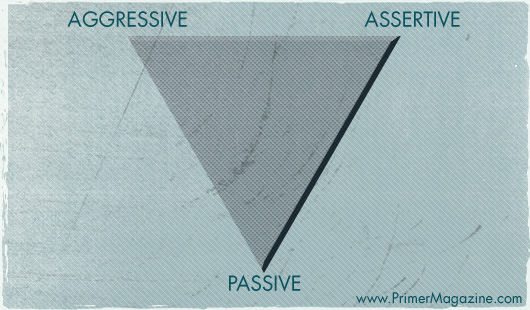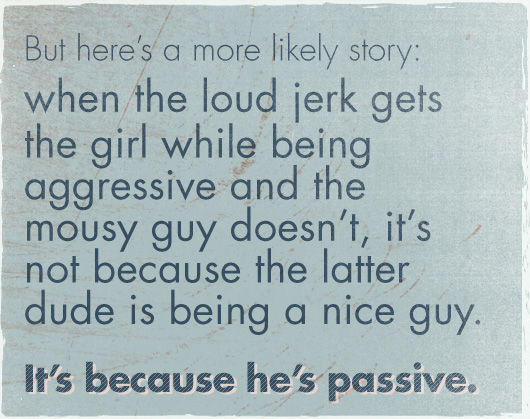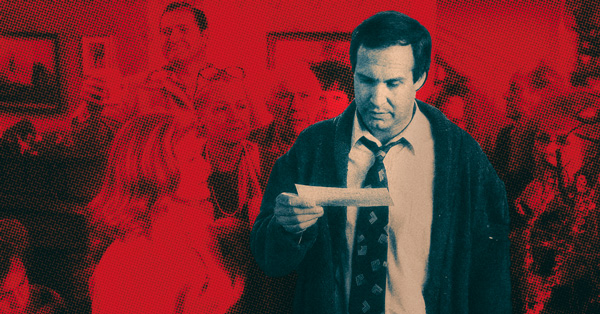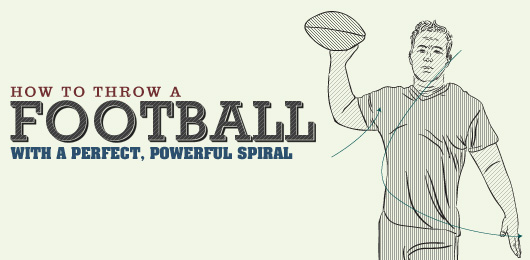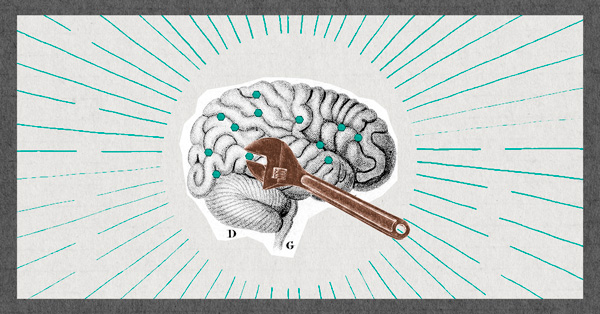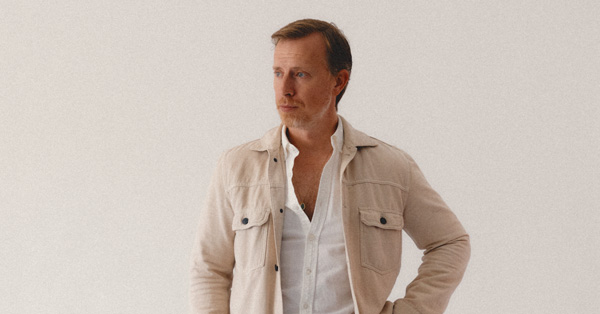“Alpha male” is a term that we’ve borrowed from the animal kingdom. Among animals, the alpha is the highest ranked individual within a group. He eats first. He mates first. He gets what he wants because the rest of the pack recognizes his superiority. The others defer to him because he’s proven that he is the strongest, fittest and most powerful male in the pack. He does so by essentially kicking everyone else’s asses on a routine basis.
That is an extremely dumbed down version of the actual concept of an alpha male, which comes from a real science called ethology. And this is the version of the alpha male that we adapt for our own pseudo-scientific explanations of success in male culture. When we construct an image of a human version of an alpha male in our minds, we often picture a guy who earns a big paycheck, drives a fast car and beds various beautiful women. He parts the crowd at clubs and nabs the doting attention of the bartender with a nod. He takes command in every meeting and is the life of every party.
An alpha male has star power without being famous. He gets royal treatment without the lineage. And in this way, he is much like the top dog or alpha monkey in that he enjoys elevated status without a formal rank.
Because of these similarities, we mistakenly assume that the same animalistic qualities that work for primates and canines will work for people. There is some validity to that. We all know of a few powerful men who seem to get everything they want simply because they are bold enough and ruthless enough to take it from those who don’t have the strength or will to stop them.
What’s troublesome is how far we take the analogy, even if we don’t particularly like the alpha males in our office, our circle of friends or our sports league. Because the power dynamic is reflected in the natural world, we’ve internalized the notion that dominance by an alpha male is the natural order of things. As such, we’ve come to recognize the characteristics of a classic alpha male as virtues. Though unseemly at times, we accept them as necessary traits for effective leadership.
I would argue, however, that they are not. While I recognize that our world needs leaders, I would caution anyone away from choosing the asshole lifestyle in the pursuit of alphadom. Because we are not animals. While this behavior may win you a momentary position of power, it won’t last.
Besides, there’s a better way.
But first, let’s talk about the classic path to alpha male status.
The False Virtues of the Classic Alpha Male
The classic alpha male powers his way to the top by exhibiting a few key virtues:
1. Be aggressive
The best defense is a strong offense. Especially if it’s a preemptive strike. If you see an opportunity, take it immediately. If you see a vulnerability in your rival, exploit it without delay.
What does this get you? As the aggressor, you get to set the pace. By striking out at someone, you task them to either respond in kind or back down. You put them in a reactionary position, which in many cases, is the weaker one.
2. Never let anyone disrespect you.
That is, don’t take shit from anyone. As a classic alpha male, your greatest currency is the recognition of your authority (grudging, resentful recognition still counts). If anyone steps on your toes or even comes remotely close to making you look like a fool, destroy them. Tear them down with a snide, sarcastic remark. Or bide your time and humiliate them publicly or otherwise sabotage their cause.
What does this get you? In some circles, demanding respect works faster than earning respect. But the main “benefit” of establishing yourself as a volatile borderline psychopath who wickedly retaliates against any perceived slight is that it convinces others to tread lightly around you. They’d rather appease you on the minor to moderate stuff, rather than find themselves in your crosshairs.
3. Be fearless
Ignore risk. Or, offload the risk onto someone else (think credit default swaps as well as other less sophisticated forms of passing the buck). Responding to risk acknowledges the possibility of failure, which is an admission of weakness. And you are not weak.
What does this get you? By going where the timid won’t tread, you reap all the rewards that they’ll never taste. Big risk ventures have big payoffs when they go right. And if they go wrong, there is probably a way to deflect the fallout toward someone else. When you’re an alpha, it’s easy to find someone else to blame or someone else to pay for your mistakes (which you’ll never admit to making).
4. Dominate others
Superiority is a relative thing. And you raise yourself higher by beating down everyone in your path. Your throne is built on a mound of skulls and your powerful reputation precedes you.
What does this get you? If a person proves to be an obstacle to your goal, you break them. This sends a strong message to other would-be contenders and it exhibits your strength and superiority. Opponents are either neutralized and removed from the scene or cowed into subordinates, subjugated to your will.
By living by the virtues of the classic alpha male, the one who bullies and blusters his way to the top in true alpha dog fashion, you can find yourself at the top of the pile quite quickly. This is especially true if the upper echelons are already populated by sharkish alphas. Initially, they may recognize and admire your drive and invite you into their fold of elder alphas (just so long as your clout doesn’t impinge upon theirs).
There’s one major downfall of this behavior: the higher up you get, the more hostile your environment becomes. With each rung of the ladder you surmount, the number of people who would love to tear you down increases. All they need is half an opportunity and they’ll be at your throat. At first, these challengers will be a mere nuisance–a solitary horsefly nipping at your immense haunches. But go on long enough, and the numbers will swell to a swarm of bees. And in spite of your track record for bullish success, there will come a day when your luck turns south. During this moment of weakness, no matter how slight or how short, the last place you want to be is in a room full of people who hate your guts.
Aside from the energy you’ll expend dealing with external unrest, life as a Type A alpha is actually physically exhausting in itself. Wall Street Journal ran a piece that asked the question “Are Alpha Males Healthy?” The article cited a study that “found that while the alpha males got the best food and the most mates, they experienced far more stress than the beta males just beneath them in the hierarchy.” Regarding human alphas, “a study of 1,750 Canadians in the Journal of the American College of Cardiology last week found that people who displayed signs of hostility—whether they admitted feeling hostile or not—had twice the risk of cardiovascular problems as those who did not.”
Life as a classic alpha male isn’t as easy as it seems.
The Virtues of the Alpha Male 2.0
That same Wall Street Journal quoted a psychiatrist who noted, “Not all alpha males are Type A, but the combination can be deadly from a health standpoint.”
So, what’s the other kind of alpha male? How do you channel your ambition into a leadership role without creating turmoil inside and out? That’s an art and science that the gurus have been studying and pontificating on for ages. But to start, you can do pretty much the opposite of what a classic alpha male does and get the same (or better) results in terms of alpha status.
1. Be assertive
Assertiveness is the number one virtue of the alpha male 2.0 and it's the key differentiator when compared to the classic alpha male. Whereas the classic alpha male uses aggression to force his will upon others, the new breed of alpha males uses assertiveness to get what he wants. Although often confused for one another, assertiveness and aggressiveness are not the same thing.
Assertiveness is confident, forthright communication without aggression. If you could imagine passivity, aggressiveness and assertiveness as a trifecta, assertiveness and aggressiveness would be equally distanced from passivity, yet branching in opposite paths. (This doesn’t account for passive-aggression. But of course, alphas are not passive.)
Assertive alphas don’t wheedle or mince words. They cut to the chase and stay on topic, deflecting excuses and attempts at manipulation. But they do so in a way that does not in turn abuse, manipulate, threaten or violate the boundaries of others.
What does this get you? Assertiveness is extremely effective at cutting through the bullshit. By failing to entertain pretenses or thin excuses, an assertive alpha efficiently brings the true sticking points (if any exist) to light and quickly moves toward a resolution or compromise. More importantly, assertiveness brings about desired outcomes based on the merits of the cause. An assertive alpha does not say, “I created you, and I can destroy you, so you’d best do what I say.” He does not intimate that you are foolish, cowardly or prudish for not acquiescing to his will. He says, “I understand that you may have trepidations about my proposal. But I believe it is a solid plan. What is it about the proposal that you find objectionable?” He deflates the objections that have no weight and directly addresses those that do. In the end, assertive alphas often win the support of would-be opponents as well as their respect.
This example is more apt for the corporate world, but assertiveness is key when it comes to dating as well.
Bear with me for a bit. This next part is a bit of a tangent, but it deserves this much space on the list because assertiveness is the cornerstone of the alpha male 2.0 (or any highly effective person). All the other qualities link back to assertiveness, and assertiveness has value that can be expressed in other ways rather than as the opposite of aggression. Assertiveness in romantic pursuits illustrates this best.
When it comes to wooing the opposite sex, a large proportion of the male population harbors a certain false dichotomy.
We tend to believe that there are only two ways to act:
(a) like an arrogant douchebag who uses pick up lines and macho puffery to attract attention or
(b) like a respectful and therefore restrained nice guy. The guy who is prone to striking out often places himself in the latter group as a means of coping with rejection. That girl probably would’ve gone home with me if she would’ve gotten to know me, he rationalizes. But that obnoxious bromagnon never gave her a chance to pay attention to me. Now, she’s going to get used by a grade A asshole and she doesn’t even know it.
If this scenario plays out over the long term, it’s often referred to as being “friendzoned.” That guy paints a portrait of himself as an all-around good guy who never gets what he wants in spite of, or perhaps because of his role as a supportive, genuine human being (rather than just some random horny, competitive douchenozzle).
But here’s a more likely story: when the loud jerk gets the girl while being aggressive and the mousy guy doesn’t, it’s not because the latter dude is being a nice guy. It’s because he’s passive. In situations like these, where the guy doesn’t get the girl, it usually has less to do with the bad guy’s aggression and more to do with the good guy’s lack of assertiveness.
Being passive isn’t the same thing as being polite or respectful or noble. But it often feels that way, which is why so many passive guys choose to be that way (I’m frequently guilty of this myself). This is an important distinction to understand. It applies to romantic relationships as well as professional, familial and fraternal ones as well. Passivity in these types of relationships can actually be a humungous disservice to the other party. And the main reason for that is that when you are passive, you don’t tell people what you want. You don’t tell them what you think, how you feel or what you believe in. There is nothing inherently rude or douchebaggy about asserting these things about yourself as long as you are honest, forthright and respectful of the thoughts, beliefs and feelings of others.
If you fail to do this, you rob that other person of the opportunity to honor your beliefs and feelings. People are not mind readers. And most don’t have the patience or interviewing chops of Ira Glass, so they won’t bother to mine the depths of your impossible soul for that nugget of pure gold. You can’t be angry at someone for failing to grant your wish if you never made the wish.
Being assertive is liberating for so many reasons. Think of all the negative feelings that result from passivity. In a relationship with one or more passive people, every interaction is awash in uncertainty. An immense amount of energy is spent trying to tease out how someone really feels or what someone really wants. If you’ve ever tried to plan a dinner and a movie outing with a group of passive people, you know what I’m talking about. People always say, “I don’t care, it’s up to you, I have no preference,” when they really do care and they really do have a preference. What usually ends up happening is an awkward compromise where no one is truly happy but no one will say so.
This is why women and power are attracted to assertive people. Note that I said assertive, not aggressive. An aggressive person dominates and force-feeds his agenda on others. This may work in some situations, but in the long run, it’s off-putting and unsustainable. An assertive person may also have an agenda, but he presents it in a constructive fashion. He provides his point of view and desired course of action and invites you to present yours. He investigates the objections, diffuses the ones that hold merit and creates a workable compromise for those that do. He takes charge not in an authoritative way, but in a collaborative way that solves problems, rather than ignores them or defers them.
To compare and contrast, here are two mock dialogues.
The first is between two passive people. The second is between a passive person and an assertive person.
Guy: “What are you doing tonight?”
Girl: “I don’t know. Derek called me…”
Guy (not hiding his distaste): “Derek? Do you like him?”
Girl: “I don’t know. He seems interested in me.”
Guy: “He doesn’t even know you, though. He probably just wants to brag to his frat buddies that he banged you.”
Girl (offended): “Because there’s no other reason to be interested in me, right?”
Guy: “That’s not what I’m saying, Jesus, why are you pissed off at me? I’m actually your friend, here.”
Girl: “Yeah, well you’re not super awesome to be around right now. I’m going out. I’ll talk to you later.”
Guy: “If you do anything with Derek, I won’t even know what to think of you.”
Girl: “It’s none of your business. Grow up.”
Let’s try this another way.
Guy: “Hey, are you busy tonight?”
Girl: “I don’t have any plans yet, but I was thinking of meeting Derek at that party.”
Guy: “I see. Well, if you haven’t made any plans yet, I thought you might like to go to dinner with me.”
Girl: “Dinner? Just the two of us? Well, I did already tell Derek that I might go…”
Guy: “If going to the party is something you want to do, maybe we could grab a late dinner and then go to the party together.”
Girl: “Well, it’s not really that…”
Guy: “What is it?”
Girl: “We’re…friends, right?”
Guy: “I consider us friends, yes. I really like hanging out with you and I thought it’d be nice to spend some time getting to know each other outside the context of class or parties or work.”
Girl (laughing nervously): “Oh, okay. I don’t know what to say.”
Guy: “Don’t say anything. Let’s just go to dinner. We’ll have a good time like we always do.”
Girl: “Okay then. See you at 8?”
Guy: “See you at 8.”
Okay, obviously both of those are caricatures of a real conversation (like anyone would say “outside the context of class” in casual conversation) but you get the idea. The scenario in both conversations is the same. The guy knows he has feelings for the girl, the girl likes the guy as a friend, but isn’t sure whether the relationship is or should be going further. The emergence of Derek–who, by the way, is an obnoxious jerk–provides an opportunity for both of them to discuss their feelings and intentions. In the first scene, the guy gets bitter and resentful because he sees the girl showing interest in Derek, even though he has spent all this quality time with her, making her laugh, sharing interests, and doing other things typical of romcom montages. But instead of telling her how he feels, the guy says something inadvertently hurtful to her in a (possibly) subconscious attempt to manipulate her into changing her mind. She, being already primed with uncertainty, reacts with indignation. She sees his comment not as an oblique profession of his romantic desires (how could she?) but as an attack on her redeemable qualities. And the whole thing falls apart.
In the second scene, the guy flat out asks her out. In this setup, she is still uncertain, and she uses Derek as an excuse to make a non-decision. The guy then deflates this excuse by offering a compromise that allows her to follow through with her tentative plans with Derek and still accept his offer. This forces her to uncomfortably air her concerns about the state and direction of their relationship. The guy then lays his cards on the table in a non-creepy, non-dramatic way that doesn’t make this date discussion into an all-or-nothing DTR (“define the relationship”). She may not end up marrying him because of that conversation alone, but at least he’s given himself a fighting chance.
Alright, we’ve spent a lot of time talking about passivity. But just so we are clear that assertiveness isn’t the same thing as aggressiveness, here’s take three, but between an assertive person and an aggressive person.
Derek: “Hey girl, are we going to the party tonight or what?”
Girl: “I know I said I was thinking of going, but after we talked, this guy asked me to go to dinner.”
Derek: “That guy? Shit, I know that guy. He’s a loser. Come to the party.”
Girl: “He’s my friend. I’m going to dinner with him.”
Derek: “You told me you were coming to the party with me. Are you backing out on me?”
Girl: “We never made firm plans. I’m sorry if you thought we did.”
Derek: “If he’s your friend, he won’t care if you go to dinner some other time. But I’ll be pissed if you bail on me last minute like that.”
Girl: “I told him I’d go to dinner and I want to go to dinner with him so I’m going to go to dinner with him instead of the party.”
Derek: “Whatever. I just want you to know that when I tell people about this you are going to come off as a bitch.”
Girl: “I don’t care what your moronic friends think of me.”
Again, sorry, I know–cheesy. I promise not to write any movie scripts. But you get the idea. There’s a wrong and right way to tell people what you want from them. But the absolute worst way is to not tell them at all.
2. Cultivate mutual respect
The alpha 2.0 recognizes that every individual deserves respect, regardless of rank, gender, nationality, education, political views or corporate allegiance. He shows respect to others because they are human, not because of their enviable accolades or clout.
What does this get you? Showing respect to everyone avoids all the various downfalls of rankism. Belittling others creates bitterness and resentment throughout the hierarchy. This resentment is harbored primarily by those who are disrespected. But it also has an impact on those who witness you being disrespectful or hear of your rankism through the grapevine (imagine how you’d feel if a date was incredibly rude to a server at a restaurant).
By showing respect to everyone–be they workers in the mailroom or high-powered foreign dignitaries–they will be more inclined to put forth a good faith effort on your behalf. Otherwise, they may not put in that extra hustle to get your package in the mail by 4:59 PM, or speak up when they hear someone malign you behind your back in the elevator.
3. Understand Risk
All ventures have risk. Whether it’s approaching someone at the bar or investing $100 million in a startup. Rather than turning a blind eye to these risks, an alpha 2.0 actively seeks to uncover and examine risk in order to manage it.
What does this get you? Obfuscating or ignoring risk may help you get a plan past a committee or your own internal censor. But it won’t help you down the road when the adverse impacts rear their ugly heads. By understanding the risk, you can identify it and quantify it so you can proceed with real confidence, rather than speculation and hubris. Better yet, you may even be able to mitigate or avoid the risk. But if you never acknowledge the risk, the fallout will always blindside you.
4. Empower Others
The alpha 2.0 isn’t just on the lookout for opportunities for himself. He also keeps an eye out for opportunities for others. Because he has a keen eye for talent and character, he’s able to build strong connections between people he trusts.
What does this get you? Power and opportunity are like the loaves and fish that fed the multitude. When opportunity is divided and given away to the right people, it multiplies. Whereas the classic alpha builds a portfolio of enemies, the alpha 2.0 has a rolodex flush with allies.
This is different, however, than having subordinates “in your pocket” a la Don Corleone. The alpha 2.0 does not empower others with the expectation of repayment. He does so as an investment in goodwill. Because of this goodwill, these allies will help the alpha 2.0 when he is high and mighty or down and out. This makes his network an effective amplifier and safety net. The classic alpha, on the other hand, will be quickly abandoned once he loses his big stick.
Conclusion
Douchebagging your way to the top is the fossil fuels of ladder climbing. It’ll get you there fast and cheap, but it’ll leave the environment far too toxic to live in comfortably. In a word, it’s unsustainable.
Life in the wild is short. Life in human society is not. A ruthless power grab will leave you with a short-lived reign and a kingdom of burned bridges. If you want to pursue your ambitions, whether in the dating game, the corporate world or anywhere else, go about it like a non-sociopath. The slow and sustainable path holds infinitely more rewards.
Further reading:
- Postmasculine – Butchering the Alpha Male – Reinventing the concept of the alpha male in terms of seduction and sexuality.
- Alpha Male Syndrome – “The difference between alphas who soar and alphas who sink…” – A book excerpt comparing the leadership styles of Michael Dell and Michael Eisner.
- Myrana Milani – Leadership vs. Dominance: Who Leads Your Human-Canine Pack? – This is about dogs, but read it anyway.
- 7 Habits of Highly Effective People – “Seek first to understand, then to be understood.” – A resounding argument in favor of listening first and talking second.
- Manuel J. Smith – When I Say No, I Feel Guilty – This is the essential handbook on assertiveness. Although it was published in the 70s, it’s extremely relevant today and well worth the $7.99 for the Kindle edition.





